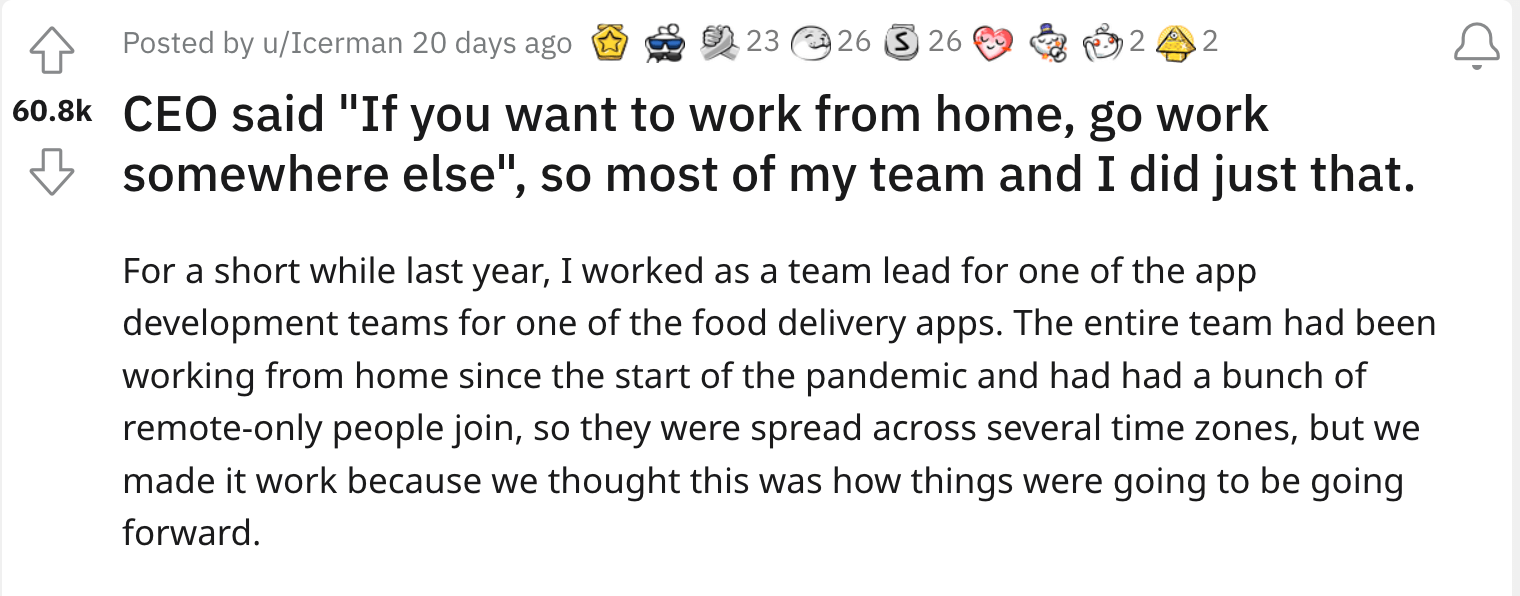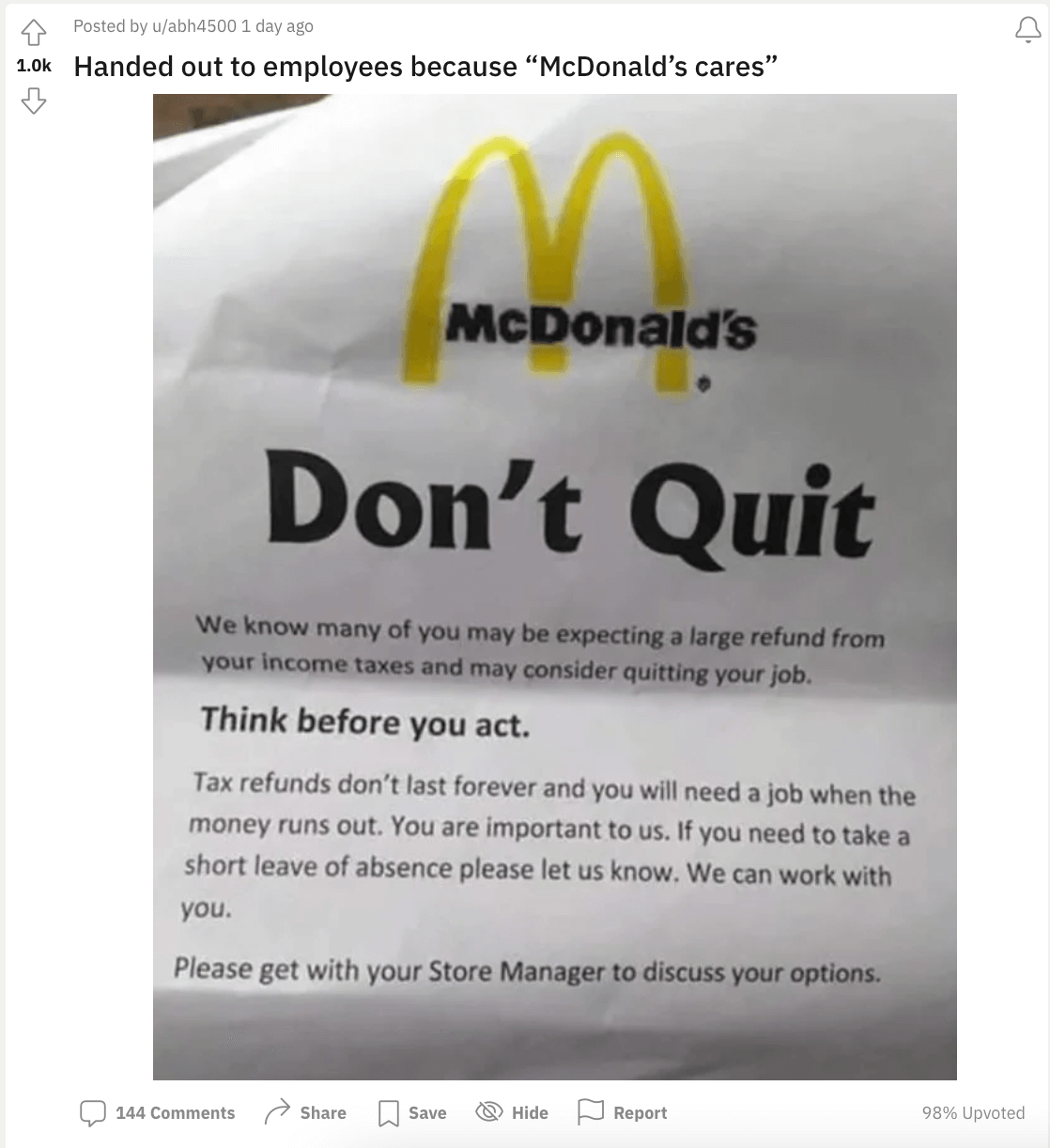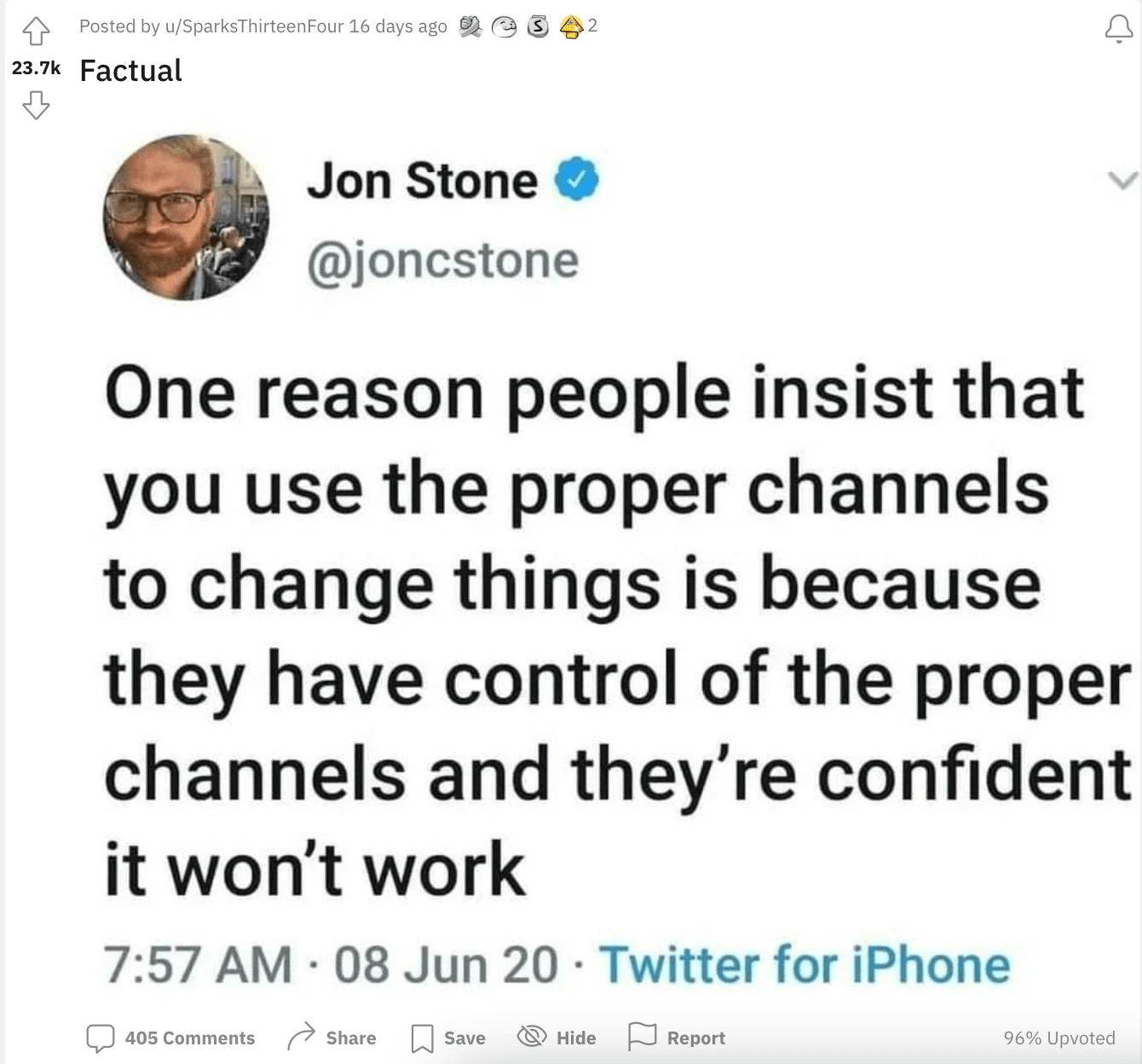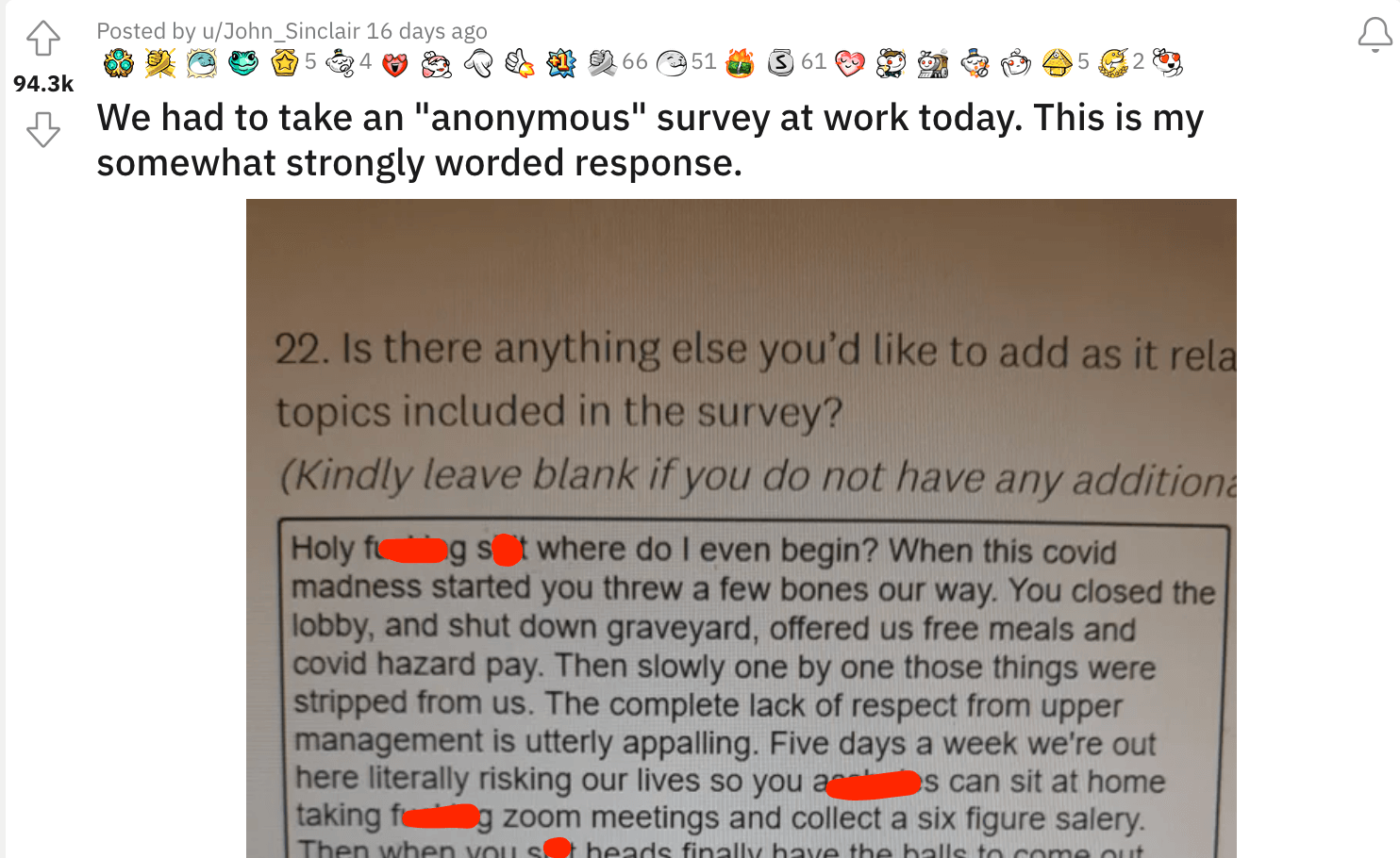4 lessons for employers from Reddit’s Antiwork community
You probably want to stay away from Reddit's new subreddit, /r/antiwork – also known in everyday parlance as the "anti-work movement". It’s just a bunch of people whining, right?

Well, yes, but if you manage people or work in HR, you need to be aware of what is happening. With 1.7 million members, it’s not a majority of people overall, but it is where people are talking. Here’s what they are talking about.
1. Employees have options
Take this story: CEO said, “If you want to work from home, go work somewhere else,” so most of my team and I did just that.
The writer details how even people hired to work remotely were told they had one year to move their families to a town with an office. The employees responded by quitting in great numbers.
Is this a true story? Maybe. The number of people who quit may be an exaggeration, but it may not be. With more than 60,000 upvotes, though, it’s clear that this resonates with people.
This is a case where the CEO thought that the employees would fold and do whatever the company said. It turns out your power over your employees is limited. With lots of people hiring (the writer says he found a new job with a 50 percent pay bump), you have even less power than you did a few years ago. Don’t make an ultimatum thinking your employees will back down. They have options they didn’t use to have and a whole lot more guts.
If in-office work is important to your business, ask your employees how to go about it. Would quarterly all-hands meetings work? Monthly regional get-togethers? If it won’t, accept the turnover.
2. Insults are not the way to go
There’s this sign, for instance.
Whether this was put up by an out-of-touch owner or an angry employee, who knows? But, combined with the glut of “no one wants to work” signs and people struggling to fill positions, it’s not a smart thing to insult employees.
Or this handout from McDonald’s that reminded employees that “tax returns don’t last forever.” Yes, this is a true principle, but it’s insulting to your employees. The last thing you want to do is insult the very people you want to work for you.
You may think your employees just need to know that it will be harder to find a job again if they quit, but it comes off as condescending.
3. Don’t keep secrets
Not explaining things can also cause problems. “In the absence of information, people make stuff up,” says HR consultant Brenda Neckvatal. So, assume that when someone has a ridiculous complaint, it’s not that they are stupid or whiny, it’s that they don’t know what is going on.
Take this tweet from Jon C. Stone.
One reason people insist that you use the proper channels to change things is because they have control of the proper channels and they’re confident it won’t work
— Jon Stone (@joncstone) June 8, 2020
It’s now circulating on /r/antiwork and drawing considerable attention.
First, we need to acknowledge that in bad businesses this is absolutely true. But, in good ones, systems exist to make things better, but your employees may not understand why.
For instance, if Jon comes to his manager and says, “Look, I’ve done the research, and the market rate for this position is 10% higher,” he may feel like his manager is putting him off by saying, “I need to talk to HR.”
But, here’s what the employee doesn’t understand and you can explain to him that the manager doesn’t control the budget, jobs vary greatly even within the same title, and the company can’t adjust Jon’s salary without adjusting a bunch of other people’s as well.
Plus, it may be time to pull out the books and show that there just isn’t money left. Not all companies have fatcat CEOs that can give up a million without blinking. For companies with under $10 million in revenue, the CEO earns under $200,000. He may still be angry after you explain, but at least he’ll know.
Another place where behind the scenes processes can make things look insensitive or downright mean is with layoffs. This person said he was laid off because he didn’t meet his boss’s vision.
This is a clear case where there could be explanations, suggestions for improvement, and perhaps some coaching. But, the manager chose to use a vague term like “vision.”
4. Listen to your employees
One very important note about listening to employees: Don’t do employee engagement surveys if you are planning to ignore the feedback you receive. This person posted an obscene rant on an employee survey (click at your own risk), and again and it demonstrates the frustrated feeling employees have.
If you’re not planning to make any changes based on the results from an employee survey, do not do the survey. It’s bad to ignore your employees’ feelings, but it’s even worse to ask them about their feelings and then ignore them.
You likely won’t be able to resolve the above employee’s concerns – because the damage appears to be done. But, for every employee that spews vitriol, there are undoubtedly others who feel neglected and abused. Listen to them.
At a bare minimum, tell your employees what you learned and what things you will address. No company can solve all employee complaints (nor should they – sometime employees are unreasonable), but you can let people know that you hear them.
Don’t spend your life at /r/antiwork. But keep in mind that there are humans here who are hurting. And even if you run the best company ever, they influence your employees. So, keep an eye out, make changes, and communicate with your employees. Honesty truly is the best policy.
In short: people – including disgruntled employees – will be more likely to accommodate imperfections if they understand that you are trying.










